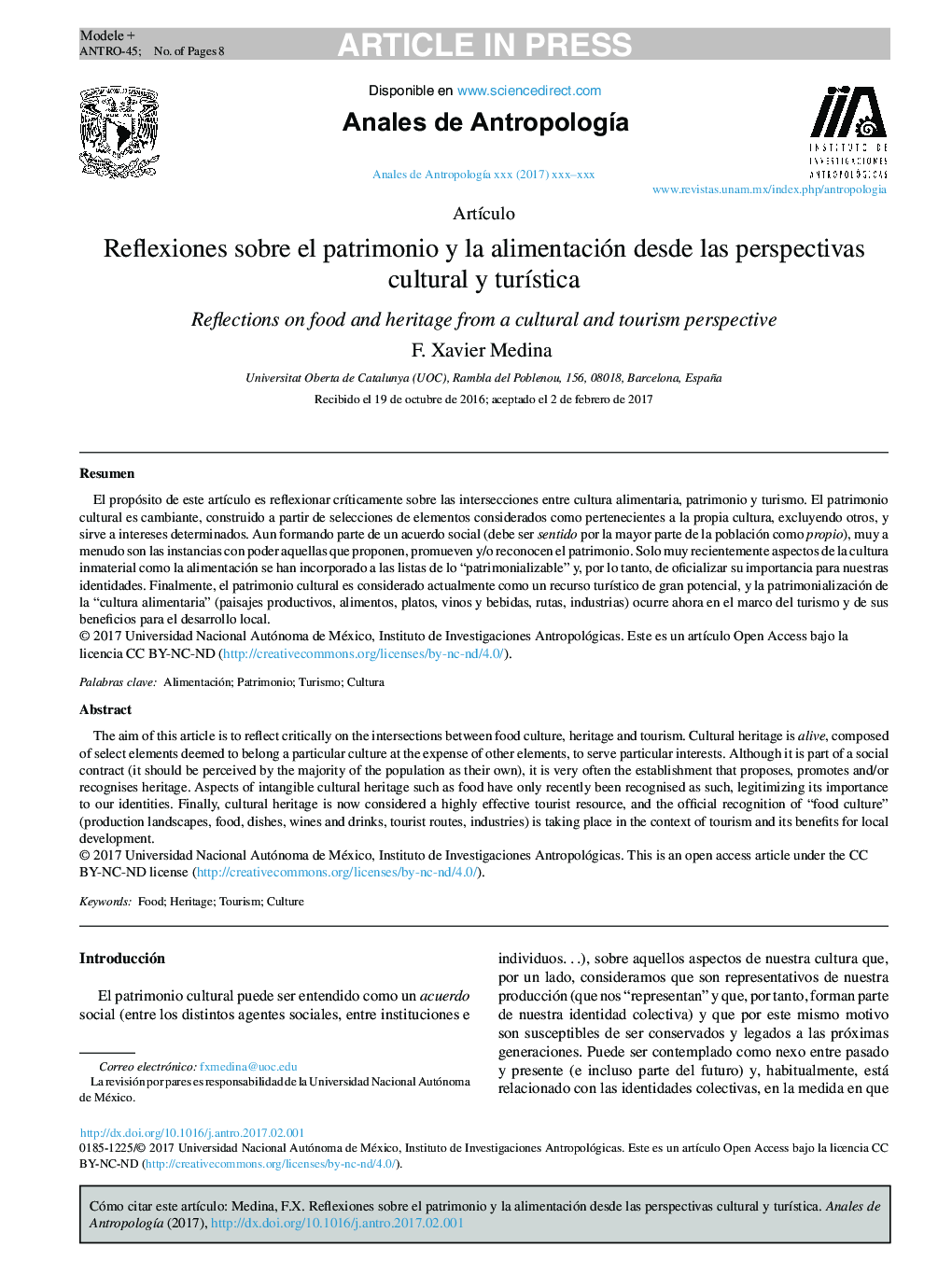| Article ID | Journal | Published Year | Pages | File Type |
|---|---|---|---|---|
| 7550563 | Anales de Antropología | 2017 | 8 Pages |
Abstract
The aim of this article is to reflect critically on the intersections between food culture, heritage and tourism. Cultural heritage is alive, composed of select elements deemed to belong a particular culture at the expense of other elements, to serve particular interests. Although it is part of a social contract (it should be perceived by the majority of the population as their own), it is very often the establishment that proposes, promotes and/or recognises heritage. Aspects of intangible cultural heritage such as food have only recently been recognised as such, legitimizing its importance to our identities. Finally, cultural heritage is now considered a highly effective tourist resource, and the official recognition of “food culture” (production landscapes, food, dishes, wines and drinks, tourist routes, industries) is taking place in the context of tourism and its benefits for local development.
Related Topics
Social Sciences and Humanities
Arts and Humanities
Arts and Humanities (General)
Authors
F. Xavier Medina,
